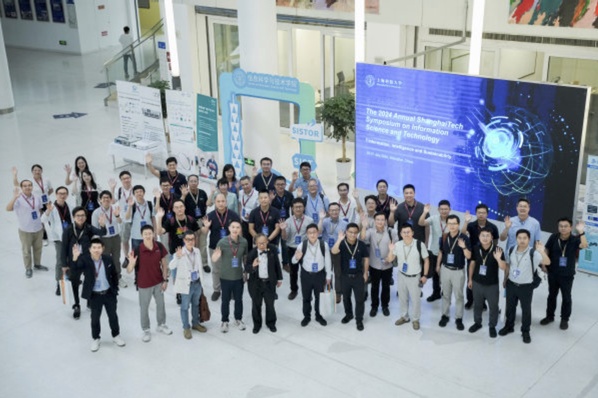Recently, the Annual ShanghaiTech Symposium on Information Science and Technology (ASSIST) 2024 concluded at the University Auditorium. The conference, themed “Information, Intelligence, and Sustainable Development,” spanned two days and featured speeches from five academicians and over 40 distinguished guests from top institutions such as the University of Hong Kong, University of Washington, Pohang University of Science and Technology, University of Waterloo, Tsinghua University, Peking University, Shanghai Jiao Tong University, University of Science and Technology of China, Zhejiang University, Chinese Academy of Sciences, International Data Corporation, and Ping An Technology. More than 500 researchers and students gathered to discuss the latest advancements in information technology and artificial intelligence driven by sustainable development goals and their potential applications in various fields.
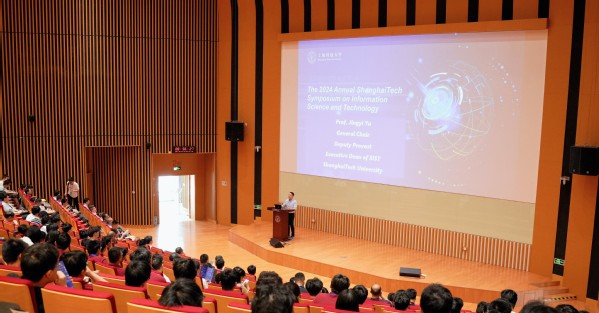
Opening ceremony of the conference
The ASSIST 2024 was organized by the School of Information Science and Technology (SIST) of ShanghaiTech University. Corporate support was provided by Delta Electronics, GGUTech, Finesense, Infineon, Zhengfei Power, and Yingbo Science&Instrument. The opening ceremony was presided over by Zhou Pingqiang, Vice Dean of SIST.
Yu Jingyi, Vice Provost and Executive Dean of SIST, and Mao Jiye, Academic Dean of the School of Entrepreneurship and Management (SEM), which was one of the co-organizers of ASSIST, served as the conference chairs and delivered opening remarks.
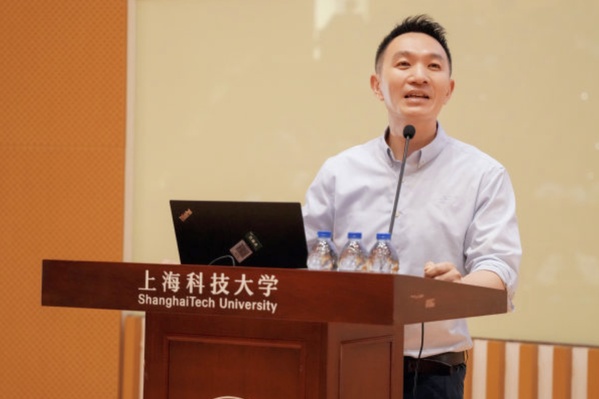
Opening remarks by Yu Jingyi
Yu warmly welcomed guests and participants from around the world and expressed sincere gratitude. He noted that the conference has become an annual academic event of great significance for scholars in information science since 2018. ASSIST not only promotes academic research but also gathers the brilliant insights of top researchers worldwide, significantly advancing academic progress and technological innovation while fostering interdisciplinary collaboration and exchange. He expressed hope that each attendee would find inspiration and enlightenment at ASSIST 2024.
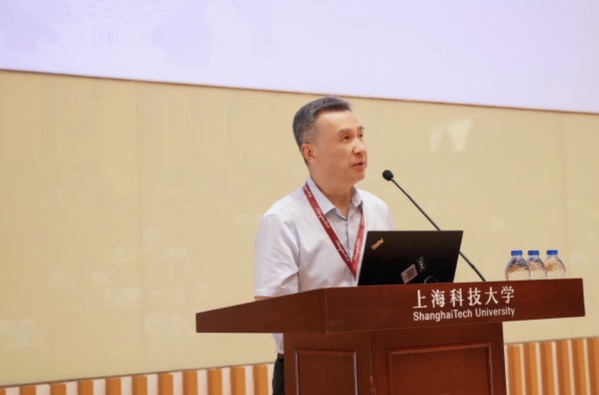
Opening remarks by Mao Jiye, Conference Chair
Mao remarked that the conference is not only an embodiment of SIST’s longstanding academic strengths but also a key platform for SEM to leverage information science and technology in advancing management science. Specifically, ASSIST 2024 featured a special forum on entrepreneurial management underpinned by information technology, providing a platform for in-depth discussion and exchange. Invited guests shared unique insights on artificial intelligence, data technology, and management.
ASSIST 2024 included seven keynote speeches and eight thematic forums, covering areas with topics such as visual and data intelligence; data technologies and artificial intelligence reshaping enterprise and management; power electronics system integration; intelligent devices and systems; intelligent for sustainable healthcare; intelligent communication, sensing, and decision-making; robotics and control; and the latest architectures, systems, and storage for intelligent computing.
One of the keynote speakers, Professor Chan Ching-chuen, Member of the Chinese Academy of Engineering and Fellow of the Royal Academy of Engineering from the University of Hong Kong, delivered a report titled “Infinite Possibilities in the Scientific World—New Journey of Energy and Automotive Revolution.” Chan emphasized the need to further revolutionize our thinking by deeply integrating the physical, information, and humanistic knowledge to solve complex problems.
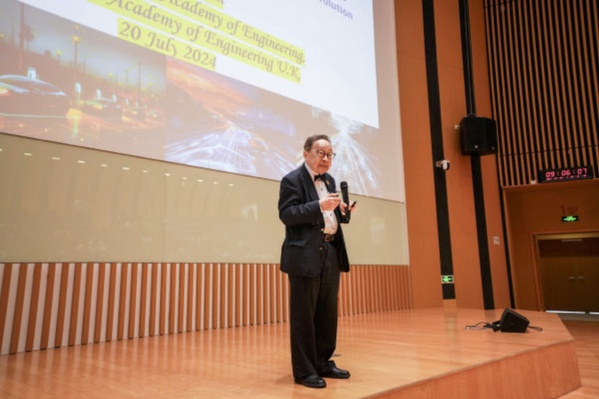
Keynote speech by Professor Chan Ching-chuen
Other keynote speakers included Zhang Wenjun, IEEE Fellow and Distinguished Professor at Shanghai Jiao Tong University; Li Erping, Fellow of the Singapore Academy of Engineering, Founding Dean of the Zhejiang University-UIUC Institute; Chulhong Kim, Member of the National Academy of Engineering of Korea and Professor at Pohang University of Science and Technology; Alfred Yu, Fellow of the Canadian Academy of Engineering and Professor at the University of Waterloo; and David Baker, Member of the National Academy of Sciences and Distinguished Professor at the University of Washington.
